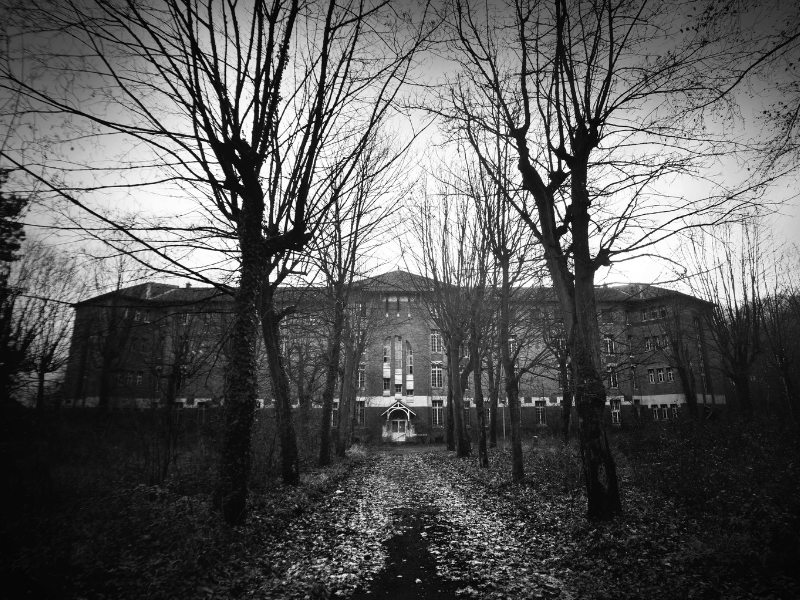All phobias limit your life in one way or another because the habitual behavior is the avoidance of the stimulus that produces fear. If you are afraid of flying, you will avoid getting on a plane and if you are afraid of dogs, you will avoid walking down the street so as not to meet any. And what if you are afraid of hospitals ? This is what happens with nosocomephobia , a disorder that can put your life at risk. You want to know more? We talk about nosocomephobia in our dictionary of phobias .
What is nosocomephobia
Nosocomephobia is the fear of hospitals , although it does not stop there. To hospitals and everything you can find in a hospital or a health center, including health personnel. In this way, it is a phobia that usually goes hand in hand with the fear of doctors or iatrophobia, the fear of blood or hematophobia or the fear of drugs or pharmacophobia . More related phobias are misophobia or fear of dirt and germs or even thanatophobia or fear of death.
Fears and phobias accumulate in this disorder that can endanger your life due to avoidance. Can you avoid going to a hospital? Maybe you can, but you shouldn’t. It must be clarified that it is not only about hospitals. People with nosocomephobia will panic when sitting in a waiting room at the dentist’s office or even lying on the physiotherapist’s table .
And this is not all, because the simple sight of an ambulance on the street can trigger that moment of panic that comes with phobias when it is impossible to avoid the stimulus.
Symptoms of nosocomephobia or fear of hospitals
This leads us to detect the symptoms of nosocomephobia. What happens when you have this phobic disorder and you see an ambulance on the way to work? Or maybe you come across a person with a cast arm, a bandage or even a scar on their face, for example. What is experienced is an episode of anxiety that can lead to a panic attack .
All symptoms of anxiety are present in a phobic disorder. It begins with palpitations , excessive sweating and dizziness ; but it goes to more. Because the shortness of breath and the tingling in the limbs makes the fear increase and you think that you are going to die. From there to a panic attack it only takes a small step. And although deep down you know that it will pass, you want to avoid that moment at all costs. And at all costs it means not encountering anything that reminds you of a hospital, much less even approaching a hospital.
Causes of nosocomephobia
We look for the causes of this phobia that, as you can imagine, is very dangerous for your health . It is clear that the idea of going to a hospital does not like anyone. The hospital refers you to illness and everyone has a certain fear of becoming ill. Now, the hospital is that place where illnesses are detected, but also where they are cured. For a person with nosocomephobia, the last part, that of healing, is not taken into account.
In most cases, nosocomephobia arises from a traumatic hospital experience . If in childhood you had a long illness and suffered the pain and discomfort of any surgical intervention or any medical treatment, it is easy for you to develop this phobia. Because that experience was a great emotional suffering and it was recorded in your mind as a dangerous situation; as a situation to avoid.
It is not necessary to have lived that traumatic experience in the first person. Perhaps a relative died after a long stay in the hospital and you associate this place with death and not with healing . As you can see, everything is a matter of perspective according to your life experiences. There are people for whom the hospital is synonymous with illness while for others it is synonymous with health. And both are correct.
Consequences of nosocomephobia
But more than the causes, we are concerned about the consequences of nosocomephobia. Because we are talking, as with other phobias , of an important limitation in your life and we are going one step further. Nosocomephobia endangers your life . If you avoid going to a hospital, you will also avoid going to your medical center earlier when you have any ailment. Just in case, just in case your doctor refers you to the hospital. Just in case you have any illness that requires a hospital stay. And so you let it pass, avoiding fear.
As you know, most of the diseases can be cured if you treat them in time. So the idea of going to the doctor when the first signs that something is wrong do not seem so wrong, right? But you cannot do it because your mind is blocked by the irrational and excessive fear of hospitals. And you can’t go. Here begins the search for a treatment because nosocomephobia is a disorder that must be overcome as soon as possible.
Treatment for fear of hospitals
The treatment of nosocomephobia goes through psychological therapy yes or yes due to the seriousness of the consequences. To overcome phobias, Cognitive Behavioral Therapy is usually used, which works both that distorted thinking that leads you to see hospitals as dangerous places and avoidance behavior . Therapy takes time, behavior cannot be transformed overnight, so other strategies are put into practice as well.
One of them is the contact with health professionals so that they can show you in a close way the most positive part of their work , the serious diseases that have been successfully overcome or the more complicated interventions that have ultimately changed the patient’s life. for the better. Even those second chances to live that sometimes happen in hospitals. Because in a hospital you not only die, you are also born and rebirth is made possible. And because, although it seems impossible to believe now, very happy moments are lived in a hospital.
The Exposure Therapy Progressive also used in the case of nosocomefobia and is a gradual approach to those places so scary. The thesis of Astrid Acevedo Santos (” Adaptation and implementation of a cognitive behavioral treatment for social phobia “) for the faculty of psychology at the Catholic University of Colombia explains it very well: “The systematic exposure of the patient to the situations avoided in a Safe environment and without imagined negative consequences taking place, helps to eliminate the fear of said stimuli and encourages the patient to face situations in the natural environment; its objective is to extinguish the conditioned fear response “.
Little by little, you can even start with images of hospitals where you see patients already recovered thanks precisely to that hospital admission.
And since all phobias are accompanied by a significant burden of anxiety, the practice of relaxation techniques , breathing exercises and, especially, Mindfulness is recommended . With these resources, not only will anxiety be reduced, but relapses will also be prevented . But as we always remember, put yourself in the hands of psychology professionals . If you want to go to pseudo-therapies, do it as an extra to psychological therapy, do not leave your health in the hands of self-help gurus.




